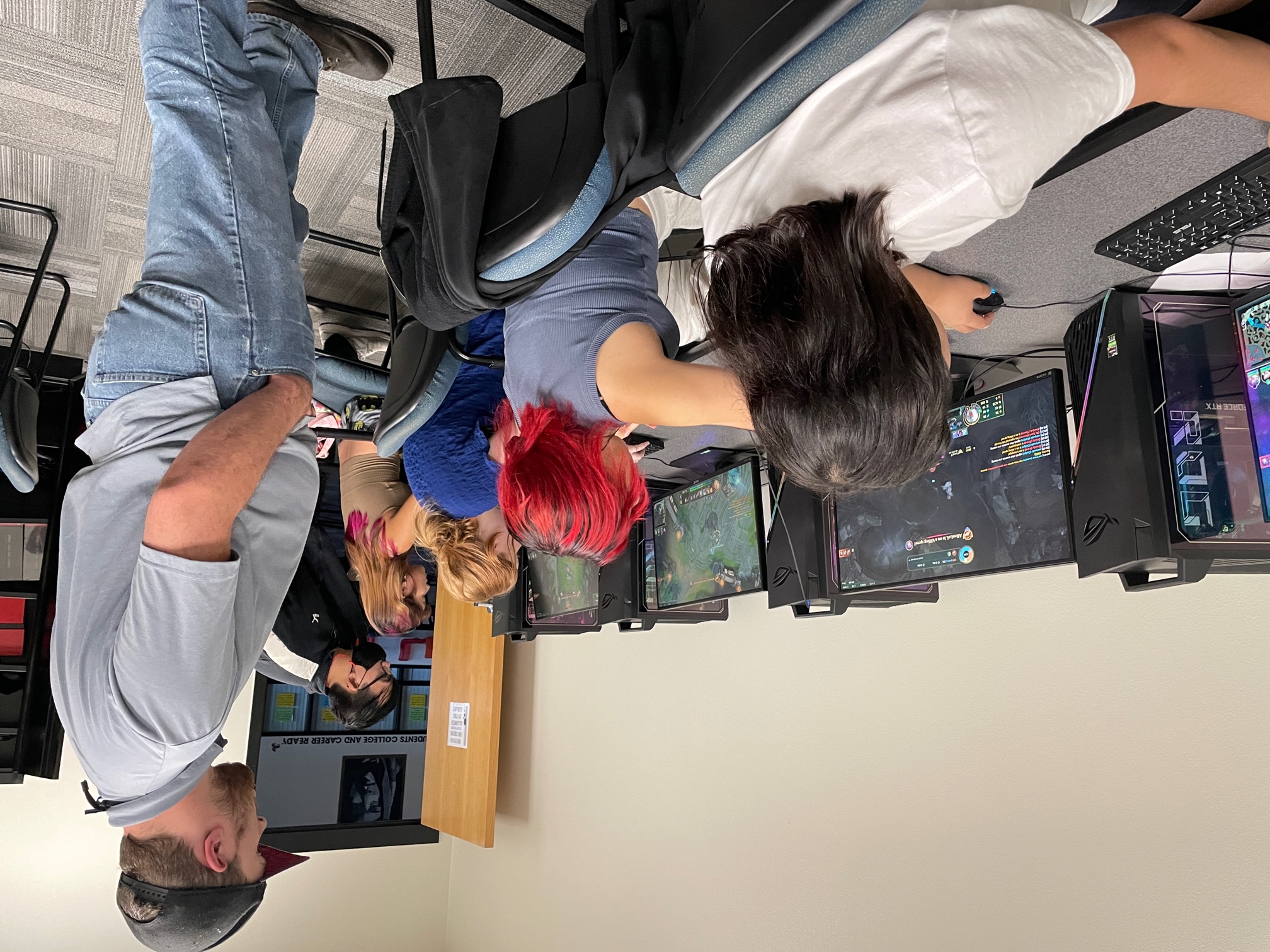Esports give new opportunities to Valley students
October 8, 2022 by Zach Wood, Arizona State University

Zachary Wood is an ASU Cronkite School of Journalism student assigned to cover Desert Edge for AZpreps365.com.
Esports, short for electronic sports, is one of the fastest growing sports in the world. Every year, video games host massive tournaments that allow players to compete and test their skills, and for serious cash, too.
Kids compete for millions of dollars, and for a chance to get their names remembered as pavers of this new style of competition. Esports have been around for a couple of decades, but kids now can go into esports with advantages that can setup their future for success.
Desert Edge is one of many Arizona high schools that are ready to give their students the opportunities to succeed in esports, and to provide the students a new way to earn their way into college.
“Starting up an Esports team -- cheaper than the football team,” Desert Edge esports coach Arthur Tomlinson said, jokingly. “All you need is like what … 10 computers in there. They’re only a grand and a half each, as opposed to $500 in protective equipment for every individual on the football team.”
Providing opportunities is a fundament goal for high schools, and the more they provide, the better their success for students. With many colleges nationwide offering esports scholarships, some include full tuition, high schools have started funding teams and building a way for students to play video games and possibly get money doing it.
“We just liked it here,” said Itzaso Bragado, a sophomore prospect on the esports team along with twin sister Agasne Bragado. “Our coach is … really fun and we like the people and the environment we are in.”
Esports teams can offer a new way for students to show pride and to be more involved with school. High schools are making many changes, and those changes must come not only from the faculty and school funding, but also from parents that might not know just how important esports will end up becoming.
“I had to keep nagging, keep being a thorn in someone’s side to get [the Esports room] open, because I know there’s going to be people that want to be on the team and maybe they don’t have a computer at home to get on the game,” Tomlinson said. “Not everyone has the same selection of hardware at home or economic situation. Give them enough time [and] they’ll at least have a fair chance…”
For Tomlinson, coaching the esports team at Desert Edge is fully extra-curricular, but the team has been fully funded by the school and provided with a budget for equipment and yearly entrance fees. Tomlinson is in his second year coaching, and many new faces have been eager to join the team and learn.
“Most of our team here is pretty new. I think we only have… five people that have at least basic knowledge [of the game],” Itzaso Bragado said.
“Playing games, I’m pretty sure… we have watched [esports] maybe more early, like watching people play [games], but, yeah, seven [years old]. My first game… definitely Minecraft,” Agasne Bragado said.
The Desert Edge esports team competes in League of Legends and Nintendo’s Super Smash Bros. The season starts in the spring, but scrimmages and try-outs are happening now for Tomlinson and his young group of students. The esports team is open to all, with inclusivity being at the heart of the club. Over half of the members on the esports team are young women.
“I’ve had problems playing games before, because I am a girl, but it never stopped me from playing games,” Itzaso Bragado said. “I’m really happy to see women coming out and competing on this team.”


